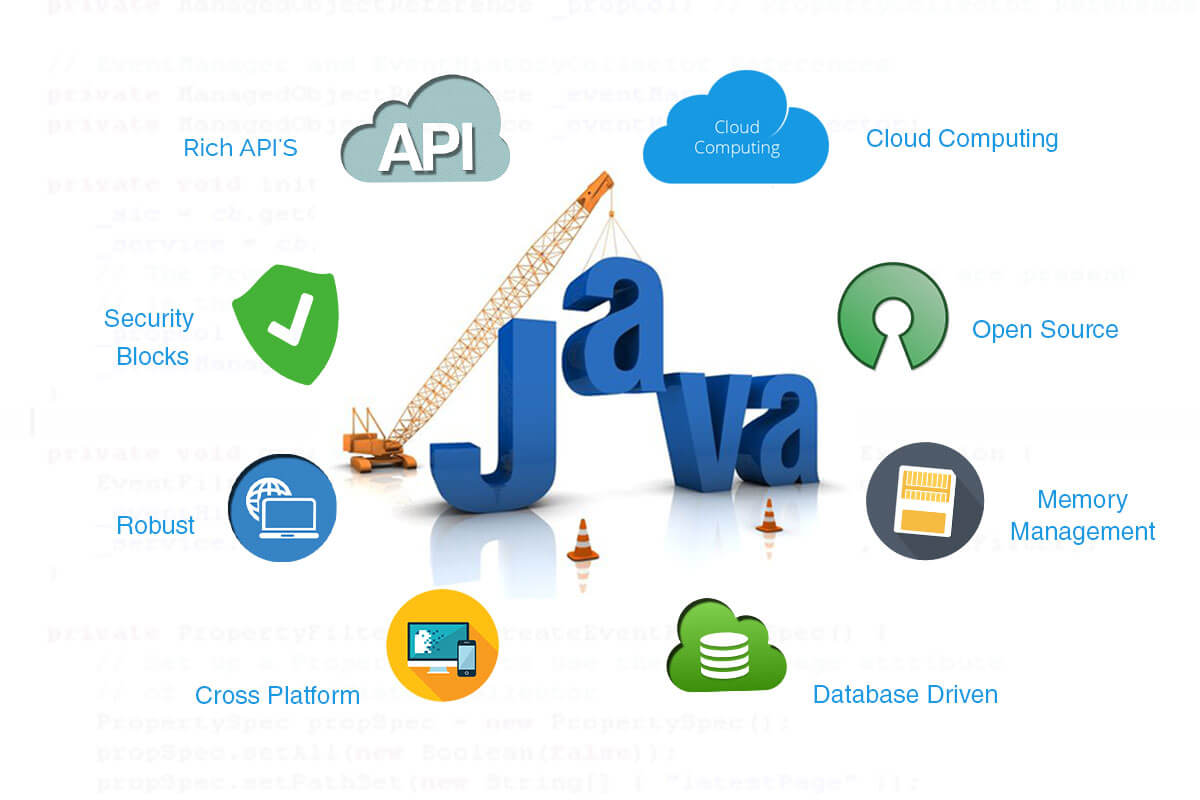
Java is a powerful, versatile, and widely-used programming language with several notable strengths:
- Platform Independence (Write Once, Run Anywhere): One of Java’s core strengths is its platform independence, achieved through the Java Virtual Machine (JVM). Java code is compiled into bytecode, which can be executed on any platform that has a JVM, making it highly portable across different operating systems.
- Object-Oriented: Java follows object-oriented principles, which helps in organizing code into reusable objects and classes. This leads to cleaner, more maintainable, and scalable code, making it easier to manage complex software systems.
- Rich API and Libraries: Java comes with a vast standard library (API) that provides built-in solutions for many common tasks, such as file handling, networking, database connectivity (JDBC), and more. Additionally, third-party libraries and frameworks like Spring, Hibernate, and Apache libraries make development faster and easier.
- Multithreading Support: Java has built-in support for multithreading, which allows developers to create applications that can execute multiple tasks concurrently. This is useful for improving performance in applications that require parallel processing, such as web servers or complex simulations.
- Security Features: Java includes a robust security model, with built-in features like bytecode verification, secure class loading, and runtime security checks. The Java security manager and access control mechanisms help prevent unauthorized access to system resources, making it ideal for developing secure applications.
- Memory Management (Garbage Collection): Java handles memory management automatically through garbage collection, which removes unused objects from memory. This reduces the likelihood of memory leaks and simplifies the process of managing resources.
- Performance: Although Java was initially slower than compiled languages like C, advances in JVM technology and Just-In-Time (JIT) compilers have made Java’s performance very competitive. The JVM optimizes bytecode at runtime, improving execution speed.
- Scalability and Reliability: Java is known for its scalability and reliability, making it ideal for large-scale enterprise applications. Its multi-threading, extensive libraries, and support for distributed computing systems (e.g., with frameworks like Java EE) make it well-suited for building high-performance, large-scale systems.
- Large Ecosystem and Community: Java has an extensive ecosystem of tools, frameworks, and platforms that support development, testing, deployment, and more. The active Java community provides vast resources, such as tutorials, forums, and open-source projects, making it easier for developers to learn and find solutions.
- Backward Compatibility: Java maintains strong backward compatibility across versions, ensuring that older Java applications continue to work on newer versions of the JVM. This feature makes Java a good choice for long-term projects that need to evolve over time.
- Cross-Platform Development: Java is widely used for developing cross-platform mobile applications, particularly for Android. With the Android SDK, Java allows developers to create native mobile applications that run on different devices and screen sizes.
- Enterprise Adoption: Java is heavily used in large enterprise applications, especially in industries like finance, healthcare, and retail. Technologies like Java EE (Enterprise Edition) and Spring make it ideal for building robust, high-performance, and distributed applications.
- Integrated Development Environments (IDEs): There are powerful IDEs available for Java, such as IntelliJ IDEA, Eclipse, and NetBeans, which provide advanced features like code completion, debugging, and version control integration, making development more efficient.
These strengths have helped Java maintain its popularity in fields ranging from enterprise software development to mobile applications and web development, making it one of the most enduring languages in the programming world.




